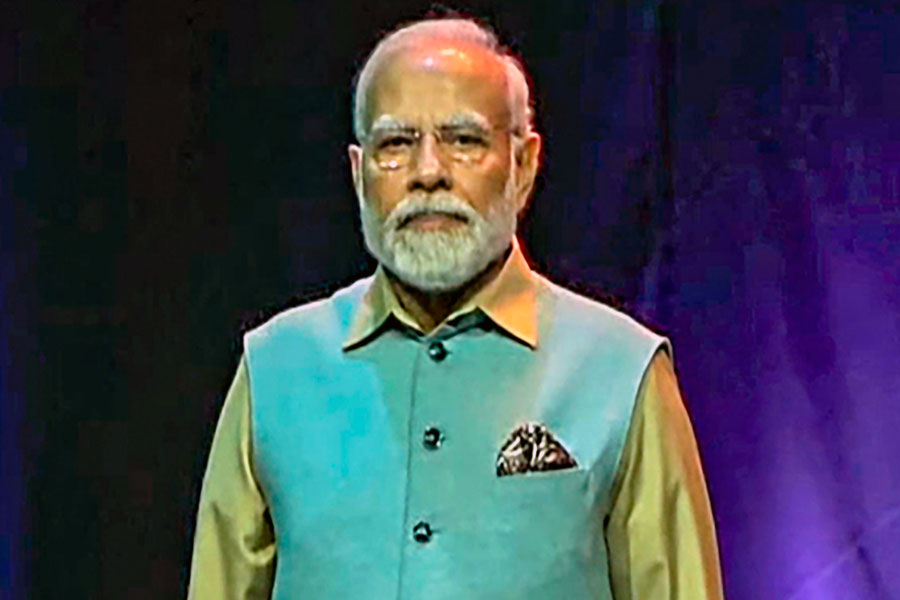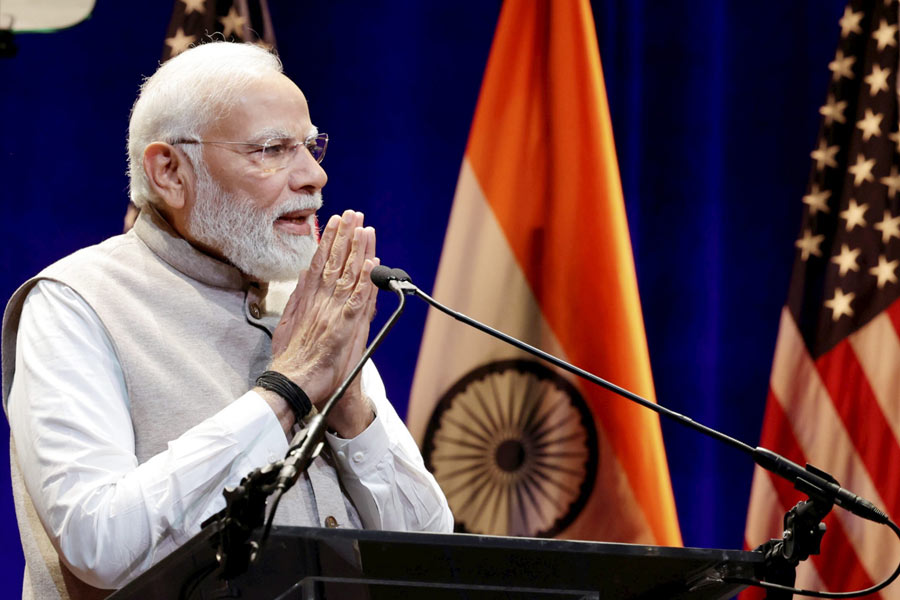The biggest challenge Prime Minister Narendra Modi is going to face from the Congress will be in the form of its welfare agenda that may force him to eat his words on “freebies” that he described as a serious threat to India’s economy.
While the Congress confronted Modi’s claims on freebies by recalling how his government wrote off corporate debt worth over Rs 10 lakh crore, what could deeply impact the BJP’s electoral prospects is the successful implementation of welfare schemes in states ruled by the rival party. The relief given on LPG cylinders in Congress-ruled states to beat the biting “Modi Rate” of Rs 1,160 per cylinder is just the tip of the iceberg.
As the scheme for the direct transfer of Rs 2,000 to women heads of families was being launched in Karnataka on Wednesday, Congress general secretary in charge of the state Randeep Surjewala said in Delhi: “A government that cannot spend 12 per cent to 15 per cent of the total budget on public welfare has no moral right to stay in office. The total outgo on the Karnataka guarantees that the Congress promised will be around Rs 45,000 crore, while the state’s budget is Rs 3.20 lakh crore. We will show how it can be managed.”
Surjewala suggested that the monthly payment of Rs 2,000 was a Congress attack on “Modi-made mahngai”.
“The women of Karnataka have told us that buying a cylinder for Rs 1,160, edible oil for Rs 200 a litre, apart from pulses and other essential items which have become unbearably costly, is not possible. When the central government attacks its citizens, the states ruled by us are coming to their rescue. The emperor sitting in Delhi should be ashamed,” Surjewala said.
While Congress-ruled Himachal Pradesh has also started paying the promised Rs 1,500 per month to women, the Ashok Gehlot government in Rajasthan on Tuesday introduced the Minimum Guaranteed Income Bill which will cover three broad areas — right to minimum guaranteed income, right to guaranteed employment and right to guaranteed social security pension.
Gehlot, whose Chiranjeevi Health scheme provides free treatment to citizens and an insurance cover of up to Rs 25 lakh in case of serious ailments, has earned global praise. He has also enacted an urban job scheme on the lines of the Mahatma Gandhi National Rural Employment Guarantee Act (MGNREGA).
While the Congress hasin poll-bound Madhya Pradesh announced Rs 1,500 for every woman, Chhattisgarh is also working on a similar scheme.
Rajasthan was the first state to bring a draft social security bill for gig workers, followed by Himachal Pradesh. The Congress, which had promised a monthly cash transfer scheme for the poor named Nyay in its 2019 manifesto, has decided to rely heavily on welfarism in the 2024 elections.
Congress communications chief Jairam Ramesh said on Wednesday that Karnataka’s Gruha Lakshmi scheme was a stepping stone towards “our commitment to a universal basic income”.
Modi, who has argued forcefully against “freebies”, will have to revisit the subject if the Congress manages to edge out the BJP in the December Assembly elections in Madhya Pradesh, Rajasthan, Telangana and Chhattisgarh. Modi condemned the tendency to offer guarantees to the people even in the Karnataka elections, warning the country against squandering national resources.
The Election Commission, which has no business to interfere in what political parties promise in their manifestoes, made the unusual move of seeking opinions on freebies, appearing to take the cue from the Prime Minister’s public posturing. A public interest petition was filed in the Supreme Court by a BJP sympathiser, seeking an order against distributing freebies.
While the majority of economists support the idea of guaranteed income to the poor, the Congress has absolutely no doubt on the efficacy of its welfare agenda after the success of the MGNREGA and the Food Security Act.
Rahul Gandhi has been asking for a paradigm shift in policy-making by stressing the need for keeping the poor at the centre. Even some BJP states distribute what is being called freebies — while Madhya Pradesh has the Ladli Behna scheme which offers Rs 1,000 to poor women, Haryana gives financial assistance to women after childbirth.
Andhra Pradesh, Telangana, Kerala, Tamil Nadu, Bihar, Bengal and Odisha, too, have such schemes. The likely emphasis by the new Opposition group INDIA on social security for the poor could compel Modi to abandon his stand on welfarism.












